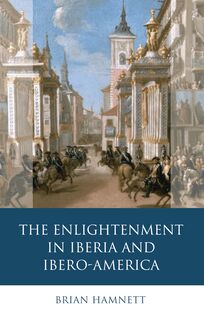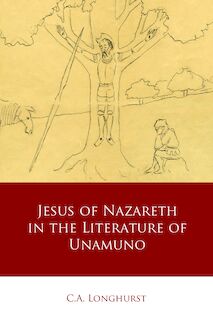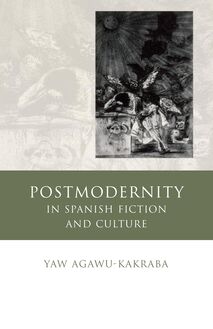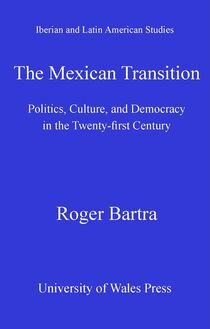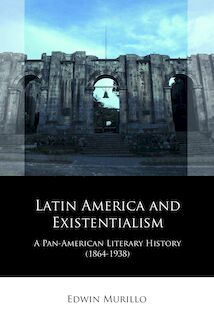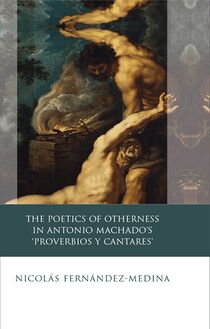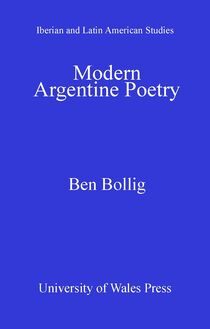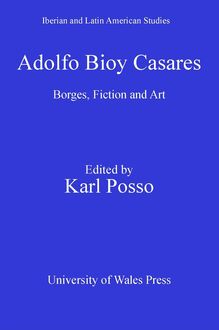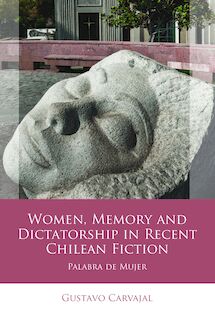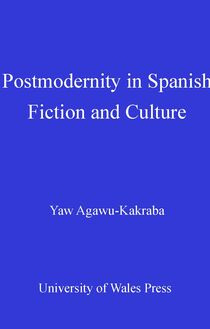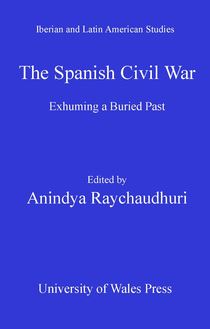-
 Univers
Univers
-
 Ebooks
Ebooks
-
 Livres audio
Livres audio
-
 Presse
Presse
-
 Podcasts
Podcasts
-
 BD
BD
-
 Documents
Documents
-
- Cours
- Révisions
- Ressources pédagogiques
- Sciences de l’éducation
- Manuels scolaires
- Langues
- Travaux de classe
- Annales de BEP
- Etudes supérieures
- Maternelle et primaire
- Fiches de lecture
- Orientation scolaire
- Méthodologie
- Corrigés de devoir
- Annales d’examens et concours
- Annales du bac
- Annales du brevet
- Rapports de stage
La lecture à portée de main
Vous pourrez modifier la taille du texte de cet ouvrage
Découvre YouScribe en t'inscrivant gratuitement
Je m'inscrisReform, Rebellion and Party in Mexico, 1836–1861 , livre ebook
Découvre YouScribe en t'inscrivant gratuitement
Je m'inscrisEn savoir plus
Vous pourrez modifier la taille du texte de cet ouvrage
En savoir plus

Description
Between 1836 and 1861, Mexico’s difficulties as a sovereign state became fully exposed. Its example provides a case study for all similarly emerging independent states that have broken away from long-standing imperial systems. The leaders of the Republic in Mexico envisaged the construction of a nation, in a process that often conflicted with ethnic, religious, and local loyalties. The question of popular participation always remained outstanding, and this book examines regional and local movements as the other side of the coin to capital city issues and aspirations. Formerly an outstanding Spanish colony on the North American sub-continent, financial difficulties, economic recession, and political divisions made the new Republic vulnerable to spoliation. This began with the loss of Texas in 1836, the acquisition of the Far North by the United States in 1846–8, and the European debt-collecting Intervention in 1861. This study examines the Mexican responses to these setbacks, culminating in the Liberal Reform Movement from 1855 and the opposition to it.
Acknowledgements
Introduction
Part One Issues and Contexts
1 What is to be done?
2 Villages, landlords and businessmen
3 Financing Mexican government
4 Political reconstruction: before the War with the United States 1836–1846
5 Political reconstruction: during and after the War, 1846–1855
6 Persistent pressure from the United States
Part Two Responses and Reactions
7 Social and ethnic tensions in their local contexts
8 Conflict in the Sierra Gorda – Querétaro, Guanajuato,
San Luis Potosí
9 The struggles in the Isthmus of Tehuantepec
Part Three Reform and Frustration
10 The Revolution of Ayutla and the first stage of the Liberal Reform, 1854–1855
11 The Lerdo Law of 1856
12 The Federal Constitution of 1857 and the road to disaster.
13 The Civil War of the Reform, 1858–1861
14 The continuation of the Reform and the final phase of the war, 1859–61
15 The Liberals return to power in 1861
Final Remarks
Sources and Bibliography
Sujets
Informations
| Publié par | University of Wales Press |
| Date de parution | 01 avril 2022 |
| Nombre de lectures | 0 |
| EAN13 | 9781786838537 |
| Langue | English |
Informations légales : prix de location à la page 0,4400€. Cette information est donnée uniquement à titre indicatif conformément à la législation en vigueur.
Extrait
IBERIAN AND LATIN AMERICAN STUDIES
Reform, Rebellion and Party in Mexico, 1836-1861
Series Editors
Professor David George (Swansea University)
Professor Paul Garner (University of Leeds)
Editorial Board
Samuel Amago (University of Virginia)
Roger Bartra (Universidad Aut noma de M xico)
Paul Castro (University of Glasgow)
Richard Cleminson (University of Leeds)
Catherine Davies (University of London)
Luisa-Elena Delgado (University of Illinois)
Maria Delgado (Central School of Speech and Drama, London)
Will Fowler (University of St Andrews)
David Gies (University of Virginia)
Gareth Walters (Swansea University)
Duncan Wheeler (University of Leeds)
Other titles in the series
Women, Memory and Dictatorship in
Recent Chilean Fiction: Palabra de Mujer
Gustavo Carvajal
Do a B rbara Unleashed: From Venezuelan
Plains to International Screen
Jenni M. Lehtinen
Ophelia: Shakespeare and Gender in Contemporary Spain
Sharon Keefe Ugalde
Madness and Irrationality in Spanish and Latin American
Literature and Culture
Lloyd Hughes Davies
Fantastic Short Stories by Women Authors from
Spain and Latin America: A Critical Anthology
Patricia Grac a and Teresa L pez-Pellisa
Carmen Mart n Gaite: Poetics, Visual Elements and Space
Ester Bautista Botello
The Spanish Anarchists of Northern Australia:
Revolution in the Sugar Cane Fields
Robert Mason
Brian Hamnett, 2022
All rights reserved. No part of this book may be reproduced in any material form (including photocopying or storing it in any medium by electronic means and whether or not transiently or incidentally to some other use of this publication) without the written permission of the copyright owner. Applications for the copyright owner s written permission to reproduce any part of this publication should be addressed to the University of Wales Press, University of Wales Registry, King Edward VII Avenue, Cardiff CF10 3NS.
www.uwp.co.uk
British Library CIP
A catalogue record for this book is available from the British Library.
e-PDF: 978-1-78683-852-0
ePUB: 978-1-78683-853-7
The right of Brian Hamnett to be identified as author of this work has been asserted in accordance with sections 77 and 79 of the Copyright, Designs and Patents Act 1988.
The publisher has no responsibility for the persistence or accuracy of URLs for any external or third-party internet websites referred to in this book, and does not guarantee that any content on such websites is, or will remain, accurate or appropriate.
Contents
Series Editors Foreword
Acknowledgements
Abbreviations
Introduction
Part One: Issues and Contexts
1 What is to be Done?
2 Villages, Landlords and Businessmen
3 Financing Mexican Government
4 Political Reconstruction: Before the War with the United States, 1836-1846
5 Political Reconstruction: During and After the War with the United States, 1846-1855
6 Persistent Pressure from the United States
Part Two: Responses and Reactions
7 Social and Ethnic Tensions in their Local Contexts
8 Conflict in the Sierra Gorda - Quer taro, Guanajuato, San Luis Potos
9 The Struggle in the Isthmus of Tehuantepec and the State of Oaxaca, 1847-1853
Part Three: Reform and Frustration
10 The Revolution of Ayutla and the First Stages of the Reform, 1854-1856
11 The Lerdo Law of 1856
12 The Federal Constitution and the Road to Disaster, February 1857-January 1858
13 The Civil War of the Reform, 1858-1861
14 The Continuation of the Reform and the Final Phase of the War, 1859-1860
15 The Liberals Return to Power, 1861: an Unresolved Dilemma
Final Remarks
Notes
Sources and Bibliography
Series Editors Foreword
Over recent decades the traditional languages and literatures model in Spanish departments in universities in the United Kingdom has been superseded by a contextual, interdisciplinary and area studies approach to the study of the culture, history, society and politics of the Hispanic and Lusophone worlds - categories that extend far beyond the confines of the Iberian Peninsula, not only in Latin America but also to Spanish-speaking and Lusophone Africa.
In response to these dynamic trends in research priorities and curriculum development, this series is designed to present both disciplinary and interdisciplinary research within the general field of Iberian and Latin American Studies, particularly studies that explore all aspects of Cultural Production (inter alia literature, film, music, dance, sport) in Spanish, Portuguese, Basque, Catalan, Galician and indigenous languages of Latin America. The series also aims to publish research in the History and Politics of the Hispanic and Lusophone worlds, at the level of both the region and the nation-state, as well as on Cultural Studies that explore the shifting terrains of gender, sexual, racial and postcolonial identities in those same regions.
For
Dr Josefina V zquez ,
El Colegio de M xico .
Great scholar and teacher ,
who has inspired us all .
Acknowledgements
A British Academy grant enabled further research for the period from 1824 to 1884 in the reorganised archives in Oaxaca. I am grateful to Dr Manuel Esparza and subsequent Directors of the Oaxaca State Archive for their support. Dr Flor Salazar, Director of the San Luis Potos State Archive, greatly assisted my research. A grant from the Nuffield Foundation enabled several months work in the Historical Archive of the Mexican Defence Ministry. I had the pleasure of talking over many questions with the late Dr Conrado Hern ndez, when we were both working there. Conversations and correspondence over many years with Dr Josefina V zquez, Dr Andr s Lira, Dr Pablo Mijangos, Professor Brian Connaugton and Dr Jos Antonio Serrano Ortega have helped clarify the issues. Professors Connaughton and Guy Thomson kindly read and commented on sections of the manuscript. I greatly miss discussing these themes with the late Professors Jan Bazant, Michael Costeloe and Paul Vanderwood.
Abbreviations
AAGENL
Anuario del Archivo General del Estado de Nuevo Le n
AEQ
Archivo del Estado de Quer taro
AGN
Archivo General de la Naci n, Mexico City
AGPEO
Archivo General del Poder Ejecutivo del Estado de Oaxaca
AHEG
Archivo Hist rico del Estado de Guanajuato
AHESLP
Archivo Hist rico del Estado de San Luis Potos
AHSDN
Archivo Hist rico de la Secretar a de Defensa Nacional, Mexico City
ANO
Archivo de Notar as de Oaxaca
BEO
Biblioteca del Estado de Oaxaca
BJDOCS
Benito Ju rez Documentos
BLAR
Bulletin of Latin American Research
BL
British Library, London
BN
Biblioteca Nacional, Mexico City
CD
Colecci n de leyes y decretos del Estado Libre de Oaxaca
CEHM
Centro de Estudios de Historia de M xico, Mexico City
CMMG
Colecci n Manuel Mart nez Gracida, Oaxaca
EHMCM
Estudios de Historia Moderna y Contempor nea de M xico
FEBJ
Fondo Especial Benito Ju rez
HAHR
Hispanic American Historical Review
HM
Historia Mexicana
JLAS
Journal of Latin American Studies
NA
National Archives, London
Introduction
Between 1836 and 1861 the Mexican Republic was caught, without allies or outside support, between European powers and an expansionist United States. Throughout this book, I draw attention to the limited fields of manoeuvre available to governments, whether federal or centralist, in the period between the loss of Texas in 1836 and the European Intervention of 1861. The weakness of the authority and effectiveness of the central government in the localities remained a striking feature. The aim here is to explain why this was so and what the consequences were. The overriding issue for the Mexican Republic from 1836 would be how to rebuild a country that no longer formed part of a larger, intercontinental system, but was left impoverished, near bankruptcy and bereft of allies or protectors. 1 The period has been described as Mexico s worst experience during the nineteenth century. 2
This struggling state had been eighteenth-century Spain s richest overseas dominion and a constant pole of attraction for enterprising Spanish immigrants able and willing to develop business activities there and to found new families with Mexican wives. New Spain, which at least until the 1790s had been remarkably stable and financially viable, experienced a series of debilitating shifts in structure, direction and leadership. Even though Imperial Spain left her American territories in dire financial straits, they also inherited a tradition of law originating in the Middle Ages. The natural law tradition of later seventeenth and eighteenth-century Europe, taught in universities, colleges and seminaries, also remained alive in nineteenth-century Mexico, alongside the newer liberal constitutional systems established after 1812. Spanish America inherited the legalism of the colonial era and with it the super-abundance of lawyers and clerics versed in civil and canon law. 3
As one of the three countries of the North American subcontinent, the Mexican Republic s relations with the United States constantly fluctuated. The Mexican War did not provide a lightening victory for US forces that could be celebrated triumphantly at home. On the contrary, the war dragged on from April 1846 to September 1847. 4 After the war, the United States pressed for further territorial concessions and transit rights across Mexican territory even after acquiring New Mexico and Upper California, while at the same time considering the acquisition of Cuba from Spain. 5
An overriding theme of this book is the struggle for representative government in the Ibero-American part of the American continent. In Hispanic America, the initial experience dated from the Spanish Cortes of 1810-14, which sought to establish liberal forms of representation based on the principle of equality before the law. The Mexican Federal Constitutions of 1824 and 1857 also followed this practice. Elections played a central role in nineteenth-century Mexican politic
-
 Univers
Univers
-
 Ebooks
Ebooks
-
 Livres audio
Livres audio
-
 Presse
Presse
-
 Podcasts
Podcasts
-
 BD
BD
-
 Documents
Documents
-
Jeunesse
-
Littérature
-
Ressources professionnelles
-
Santé et bien-être
-
Savoirs
-
Education
-
Loisirs et hobbies
-
Art, musique et cinéma
-
Actualité et débat de société
-
Jeunesse
-
Littérature
-
Ressources professionnelles
-
Santé et bien-être
-
Savoirs
-
Education
-
Loisirs et hobbies
-
Art, musique et cinéma
-
Actualité et débat de société
-
Actualités
-
Lifestyle
-
Presse jeunesse
-
Presse professionnelle
-
Pratique
-
Presse sportive
-
Presse internationale
-
Culture & Médias
-
Action et Aventures
-
Science-fiction et Fantasy
-
Société
-
Jeunesse
-
Littérature
-
Ressources professionnelles
-
Santé et bien-être
-
Savoirs
-
Education
-
Loisirs et hobbies
-
Art, musique et cinéma
-
Actualité et débat de société
- Cours
- Révisions
- Ressources pédagogiques
- Sciences de l’éducation
- Manuels scolaires
- Langues
- Travaux de classe
- Annales de BEP
- Etudes supérieures
- Maternelle et primaire
- Fiches de lecture
- Orientation scolaire
- Méthodologie
- Corrigés de devoir
- Annales d’examens et concours
- Annales du bac
- Annales du brevet
- Rapports de stage
